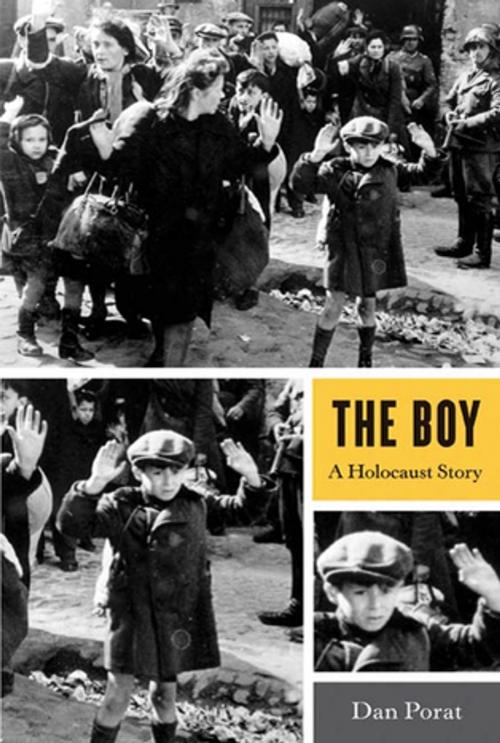The Boy
A Holocaust Story
Nonfiction, History, Jewish, Holocaust, Military, World War II, Social & Cultural Studies, Social Science| Author: | Dan Porat | ISBN: | 9781429989343 |
| Publisher: | Farrar, Straus and Giroux | Publication: | October 26, 2010 |
| Imprint: | Hill and Wang | Language: | English |
| Author: | Dan Porat |
| ISBN: | 9781429989343 |
| Publisher: | Farrar, Straus and Giroux |
| Publication: | October 26, 2010 |
| Imprint: | Hill and Wang |
| Language: | English |
A cobblestone road. A sunny day. A soldier. A gun. A child, arms high in the air. A moment captured on film. But what is the history behind arguably the most recognizable photograph of the Holocaust? In The Boy: A Holocaust Story, the historian Dan Porat unpacks this split second that was immortalized on film and unravels the stories of the individuals—both Jews and Nazis—associated with it.
The Boy presents the stories of three Nazi criminals, ranging in status from SS sergeant to low-ranking SS officer to SS general. It is also the story of two Jewish victims, a teenage girl and a young boy, who encounter these Nazis in Warsaw in the spring of 1943. The book is remarkable in its scope, picking up the lives of these participants in the years preceding World War I and following them to their deaths. One of the Nazis managed to stay at large for twenty-two years. One of the survivors lived long enough to lose a son in the Yom Kippur War. Nearly sixty photographs dispersed throughout help narrate these five lives. And, in keeping with the emotional immediacy of those photographs, Porat has deliberately used a narrative style that, drawing upon extensive research, experience, and oral interviews, places the reader in the middle of unfolding events.
A cobblestone road. A sunny day. A soldier. A gun. A child, arms high in the air. A moment captured on film. But what is the history behind arguably the most recognizable photograph of the Holocaust? In The Boy: A Holocaust Story, the historian Dan Porat unpacks this split second that was immortalized on film and unravels the stories of the individuals—both Jews and Nazis—associated with it.
The Boy presents the stories of three Nazi criminals, ranging in status from SS sergeant to low-ranking SS officer to SS general. It is also the story of two Jewish victims, a teenage girl and a young boy, who encounter these Nazis in Warsaw in the spring of 1943. The book is remarkable in its scope, picking up the lives of these participants in the years preceding World War I and following them to their deaths. One of the Nazis managed to stay at large for twenty-two years. One of the survivors lived long enough to lose a son in the Yom Kippur War. Nearly sixty photographs dispersed throughout help narrate these five lives. And, in keeping with the emotional immediacy of those photographs, Porat has deliberately used a narrative style that, drawing upon extensive research, experience, and oral interviews, places the reader in the middle of unfolding events.















